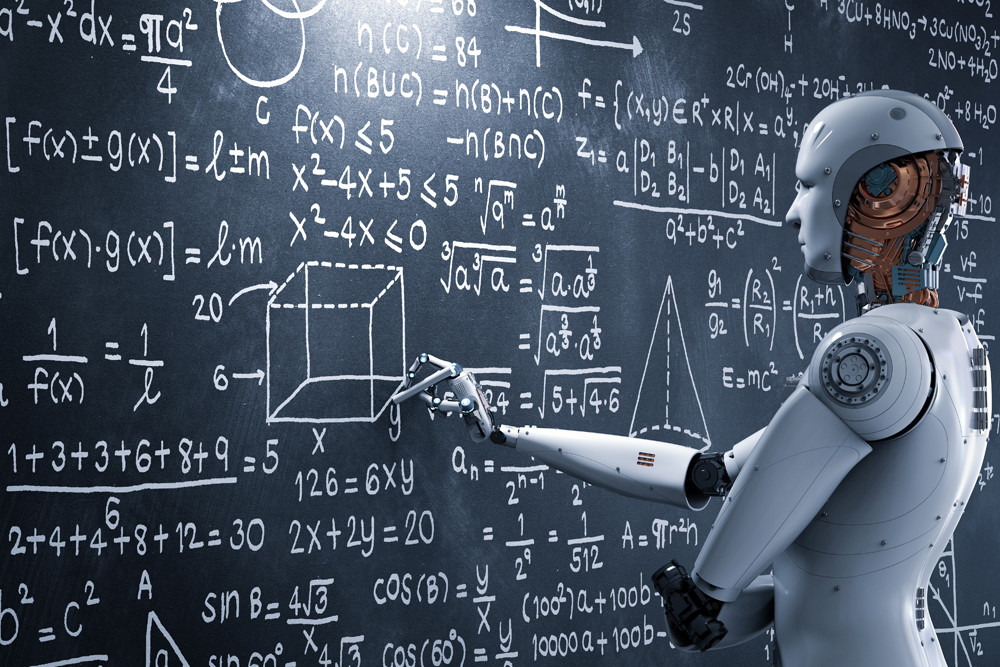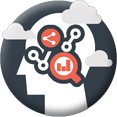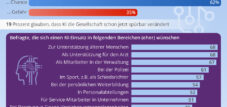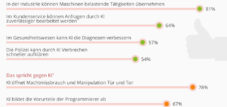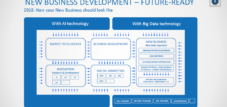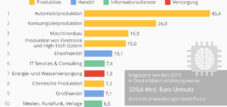Artificial intelligence – smart business thanks to big data
Language selection 📢
Published on: February 10, 2018 / update from: September 9, 2018 - Author: Konrad Wolfenstein
Artificial intelligence – smart business thanks to big data
There is much to suggest that 2018 will be the year in which the topic of artificial intelligence (AI) in business and society finally receives the attention it deserves. It is already clear that the technology will shake up entire industries and systems - even areas that are not yet even beginning to expect it. Because the possibilities opened up by AI are revolutionary.
Many people discuss it, but very few people actually know what AI is about and what effects it will have on us. Bill Gates, Microsoft founder and IT pioneer, is predicting an AI revolution in the next 20 years that will completely revolutionize the job market. Activities that are still carried out by humans today can then be taken over by robots or software systems. Transport logistics with self-driving trucks or taxis driving autonomously through the city are just one example of many.
One of the pioneers of development was IBM with its Watson. Originally developed for speech recognition, the system is now used successfully by countless users worldwide in communication, analysis and diagnosis. Meanwhile, countless small startups as well as the big players from Silicon Valley are working hard on AI development. But AI is not only being driven by companies like IBM and Google. OpenAI, which is also supported by Elon Musk (Tesla, SpaceX), is a non-profit organization with a billion dollars in donations that has set itself the goal of researching artificial intelligence. An AI (Artificial Intelligence=AI) is to be developed on an open source basis in order to grant everyone access to the technology and allow society to benefit as a whole.
AI – the big data technology
It's always easy to talk about big data, even if it doesn't apply at all in individual cases. However, AI is really a technology that consumes gigantic amounts of data. Due to the almost infinite amount of information available, high-performance software systems are the prerequisite for a smooth workflow.
The working principle of AI
- All information and current states are recorded in the AI database
- Integrated filters provide extremely quick access to unimaginable amounts of real-time information
- These are categorized according to their own (programmed) standards
- Information is no longer recognized and analyzed based on its content, but rather based on its patterns
- Based on the database, AI organizes answers and decides on actions
- The more new data flows in, the more the system “learns” (deep learning).
More productivity in business thanks to AI
So far, it has usually been the case that even in automated production systems, despite the use of software, relatively firmly defined processes are still organized. The number of autonomously operating devices in the manufacturing industry is constantly increasing, but the use of AI could revolutionize the entire process chain. This is also necessary because, driven by, among other things, the constantly growing e-commerce, ever more flexible and faster systems are required in order to overcome the growing challenges. But AI promises groundbreaking revolutions not only in industry. Artificial intelligence will also set new standards in the digital service sector. The principle of intelligent data analysis is perfect for business intelligence in companies. To do this, the software can access a large pool of internal and external company data, for example via Google or from databases provided. Being so well equipped, Business Intelligence@AI is ideal for:
- Market and competition analyses
- Online marketing optimization
Anyone who thinks that this technical revolution is driven solely by California is wrong. There are also innovative IT service providers in Germany that develop AI-based marketing solutions for customers.
It is not surprising that the system can make extremely precise predictions for improvements in online marketing. For example, by analyzing users' online activity, it can predict to its customers the ideal content and time to post their social media posts. The software also has an answer to the question of optimal target group filtering on various channels. With these services, AI takes on a function that agencies are now paying dearly for from their customers - another industry that runs the risk of disappearing from the market due to AI if it does not change.



